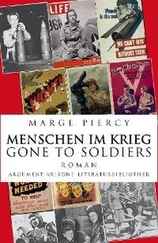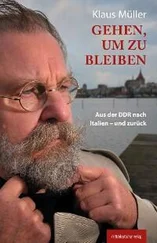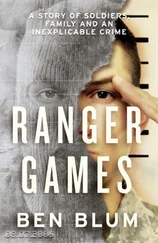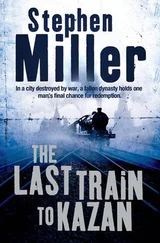A Game of Soldiers
Stephen Miller

For Wendell
And down the embankment of history
Came not the calendar
But the real Twentieth Century
Akhmatova
The decadent Ottoman Empire is in retreat.
Poised on her northern borders, the Austrian and Russian Empires intrigue ceaselessly to further their own ambitions. For Russia it is the dream to possess Constantinople and guarantee herself an outlet to the Mediterranean. For Austria, it is hegemony over the Balkan nations, and naval domination of the Adriatic. Unable to restrain herself, in 1908 she annexes the province of Bosnia – a stroke that inflames Serb patriots.
By 1913 the Great Powers are locked into a frenzied arms race, spending themselves into debt producing dreadnoughts, howitzers, repeating rifles, experimental aeroplanes, and undersea boats. At the same time humans are connected as never before – by motorized vehicles on improved roads; by faster vessels, telephone exchanges, and telegraphic cables that girdle the Earth.
As the Ottoman tide ebbs, all the Balkan nations begin vying for supremacy over their neighbours. In a mad dance of betrayal and avarice, Greece, Turkey, Bulgaria, Montenegro, and Serbia fight a bloody war. Momentarily separated by an armistice in April, they are joined by Rumania to clash again barely two months later.
Although the wars in the Balkans are remarkable for their cruelty and casualties, the Serbs are doing well. Their star is in the ascendant, but they are anxious that in a future war against Austria-Hungary they cannot win alone. As fellow Slavs they look towards Russia for protection.
Everyone is afraid to provoke mighty Russia. Her multi-million peasant armies are thought capable of annihilating any opposition. But Russia’s Tsar is more remarkable for his faults than his virtues. St Petersburg might be one of the great cities of Europe, but the court is in the grip of sycophantic corruption. Nicholas is an indecisive man who likes domestic life, who enjoys noting down the changes in the weather. The Tsarina Alexandra has given him four daughters and an heir – Alexei, afflicted with the barely-understood disease of haemophilia. Deeply religious, and despairing, the Romanovs are easy dupes for a series of faith healers and charlatans who promise a cure for the Tsarevich.
None of this is a secret. Indeed all of these topics are endlessly discussed in newspapers, cafés, and bars; in the streets and on trams, over expensive dinners in the finest restaurants, and over cigars and brandy in diplomatic salons, in bedrooms and bordellos. A whirlwind of gossip, speculations, and nightmares. Amateur strategies, and apocalyptic theories. All is known. All is pondered, all is anticipated.
Yet still there are secrets.
Cover Page
Title Page
Epigraph
Excerpt
St Petersburg 1913
ONE
TWO
THREE
FOUR
FIVE
SIX
SEVEN
EIGHT
NINE
TEN
ELEVEN
TWELVE
THIRTEEN
FOURTEEN
FIFTEEN
SIXTEEN
SEVENTEEN
EIGHTEEN
NINETEEN
TWENTY
TWENTY-ONE
TWENTY-TWO
TWENTY-THREE
TWENTY-FOUR
TWENTY-FIVE
TWENTY-SIX
TWENTY-SEVEN
TWENTY-EIGHT
TWENTY-NINE
THIRTY
THIRTY-ONE
THIRTY-TWO
THIRTY-THREE
THIRTY-FOUR
THIRTY-FIVE
THIRTY-SIX
THIRTY-SEVEN
THIRTY-EIGHT
THIRTY-NINE
FORTY
FORTY-ONE
FORTY-TWO
FORTY-THREE
FORTY-FOUR
FORTY-FIVE
FORTY-SIX
FORTY-SEVEN
FORTY-EIGHT
FORTY-NINE
EPILOGUE
SOURCES AND ACKNOWLEDGEMENTS
About the Author
Copyright
About the Publisher
St Petersburg 1913
St Petersburg shimmered like a vast hallucination. It was three in the morning, but on this white June night the sun flared like a beacon over the deserted boulevards.
Lost in their dreams, the innocents slept. It was the hour of the prostitute and her final client, the hour when the drunk had collapsed into his nightmare, the hour when the suicide ceased his pacing. It was the hour of the thief and the hour of the investigator, the hour when tears had dried and laughter was just a memory. The hour of the predator and the hour of the victim.
Petersburg was a premeditated city. A metropolis with artificial neighbourhoods and preposterously wide boulevards that ran arrow-straight to the horizon. It was a place even a peasant could understand, its avenues designed for military parades, bisected by canals whose bridges could easily be blocked by cossacks.
Three centuries of Romanov rule had not mellowed the city’s master plan; there were the parks with their silent green foliage, cathedrals looming over statues of long-dead Tsars, garish sentinels protecting the most important circles and plazas.
An artist’s eye might linger on the barges moored against the embankments, the golden flash of the Admiralty’s spire, the leaden green light across the broad waters of the Neva, the row of red-painted government buildings interrupted by the gigantic yellow General Staff building. But no colours could enliven Russia’s purpose-built gateway to the world – a city built upon the corpses of serfs enslaved to the horrific aspirations of Peter the Great. A capital born with its cord anchored to a swamp – beautiful, on the surface.
On this garish morning two carriages were drawn through the heart of the empty city. Leading was an opulent troika pulled by white horses. Beneath its luminous black lacquer one could still detect the ornamental crest of the House of Romanov. At a discreet distance a threadbare izvolchik followed, with three members of the Okhrana secret police crammed inside. Beyond boredom, they had nothing to look forward to and no plans, for anything might happen at such an hour. They had raised the top of the cab to protect themselves from the glare and two were sleeping while their superior leaned his head against the window post and fought to stay awake.
Pyotr Ryzhkov watched the city glide by – a long blur of apartment blocks, office buildings and markets, most of them built in identical style, from identical materials to an identical height. The slow pace of the carriage gave him the illusion that he was falling – sinking into an eternal void.
Ryzhkov was the most ordinary-looking of the three. With unruly dark hair and strong brows, he looked like his father without the moustache. Eyes that were blue, but with dark pupils, as if always starved for light. He seemed a little older than his years, the hard life had done that. Here and there he had a scar; wrinkles of concern, and a slight frown that had etched itself into the mask he had worn as a face for too many years. He needed a shave and a few regular meals. He needed a vacation, some new clothes. To sleep. A new life.
Ahead of them the elegant troika slowed, turned off the embankment on to a narrow side street. Muta flicked his whip, and in a few seconds they reached the intersection in time to see the troika stopping at the entrance to an ornate office building.
‘All right. He’s decided to stop…’ Ryzhkov nudged Konstantin Hokhodiev awake. Kostya was a big man. He yawned and stretched and tried to straighten his legs in the small carriage. ‘Whose place is it this time?’ he groaned without opening his eyes.
‘I don’t know. Someone with money to spend, just looking at it,’ Ryzhkov said. Down the street a queue of expensive carriages and motorcars rested at the kerb, their drivers sleeping or standing about smoking. The windows of the mansion were open and there was a wash of sound: music, laughter, groans.
Читать дальше
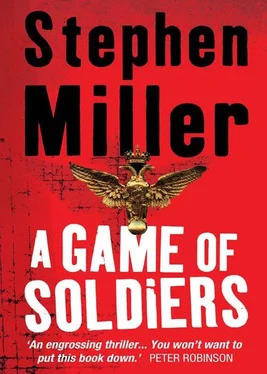



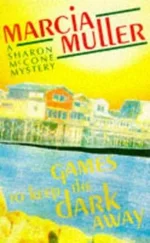
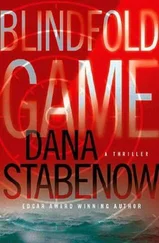
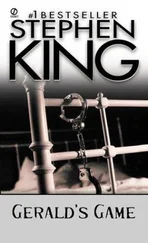
![Stephen Ambrose - Citizen Soldiers [Condensed]](/books/346737/stephen-ambrose-citizen-soldiers-condensed-thumb.webp)

